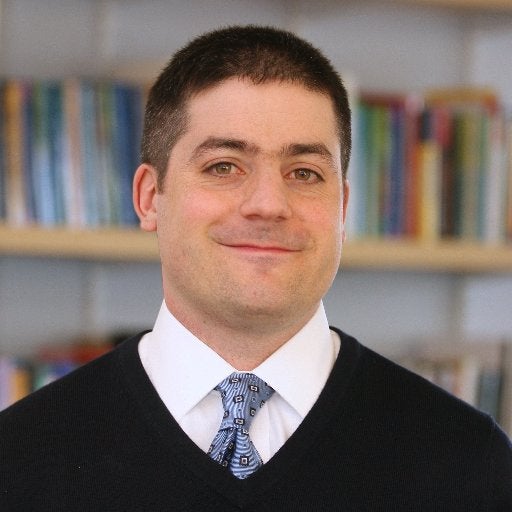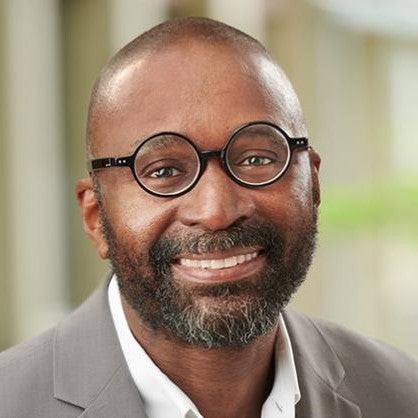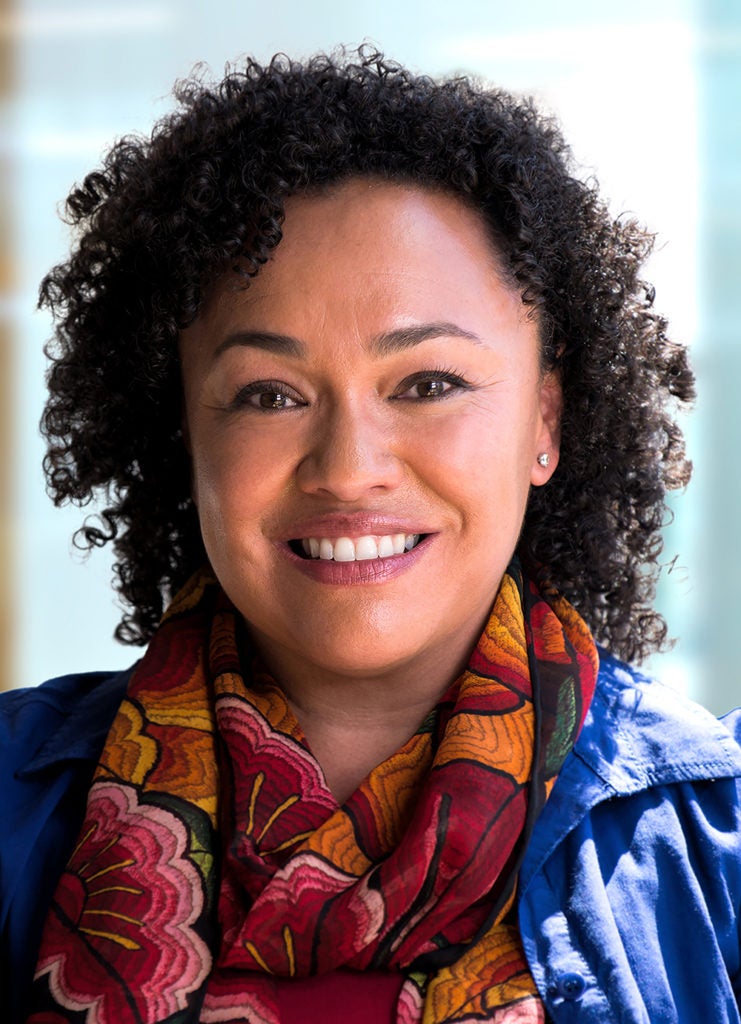Dr. Ezekiel Dixon Román
Data Science for Social Innovation
Dr. Dixon-Román’s research rethinks and reconceptualizes the technologies of quantification from a critical theoretical lens (broadly conceived). He’s particularly interested in how power and inequality are reproduced, especially in human learning and development, and the ways in which sociotechnical systems of quantification are working on, with, and in the body to generatively form and shape the movement and flow of power, difference, and inequality. At the same time, he’s deeply interested in philosophically and methodologically developing alternative modes of inquiry and practices of quantification that might enable the potentialities of reconstituting sociopolitical relations and the movement and flow of social life.
Dr. Dixon-Román is the author of Inheriting Possibility: Social Reproduction & Quantification in Education (2017, University of Minnesota Press). In this book project, he reconceptualizes quantification and theories of social reproduction in education from a cultural theoretical lens that posits culture is nature and the human is one of myriad expressions of Earth’s becoming. Inheriting Possibility received the 2018 Outstanding Book Award from the American Educational Research Association.
He also co-edited Thinking Comprehensively About Education: Spaces of Educative Possibility and Their Implications for Public Policy (2012, Routledge) as well as co-guest edited “Alternative Ontologies of Number: Rethinking the Quantitative in Computational Culture” (2016, Cultural Studies-Critical Methodologies) and “The computational turn in education research: Critical and creative perspectives on the digital data deluge” (2017, Research in Education).
His current book projects include a Handbook of Critical Inquiry and Quantitative Methods, an edited collection of scholarship that philosophically rethinks the possibilities of quantitative methods for critical inquiry. He is working on an authored book project that is theoretically and empirically examining the ways in which data and algorithms become racialized, particularly in the area of algorithmic governance, and, as a result, are active agencies in reconfiguring sociopolitical relations in society. Finally, he is also working on a book project that seeks to draw more explicit links between psychometrics and cybernetics. In this book project, he is examining the psychometric influences that underlie cybernetic systems of computational measurement and reasoning and the ways this may be contributing to the reconfiguring of education and society.
Dr. Dixon-Román is chair of the Data Analytics for Social Policy Certificate of the Masters of Science in Social Policy Program and leading the SP2-Aliadas en Cadena Initiative, which is an evaluation of the Venezuela based NGO’s flagship program that provides training and certification in information and communication technologies for vulnerable women. He is trained in the social sciences and psychometrics and was a Harold Gulliksen Psychometric Research Fellow at ETS and an Institute of Education Sciences Postdoctoral Fellow in the Institute for Policy Research at Northwestern University.

Dr. Femida Handy
Ethics and Social Impact
Femida Handy is Professor of Social Policy at the School of Social Policy and Practice at the University of Pennsylvania and the Director of the PhD program. Her research and teaching focus on the economics of the nonprofit sector, volunteering, philanthropy, nonprofit management, entrepreneurship, and microfinance.
Prior to being appointed as Editor-in-Chief of Nonprofit and Voluntary Sector Quarterly in 2010, the premier journal in the field, she served on the editorial board of several academic journals. Professor Handy has published widely in a variety scientific journals on a variety of nonprofit-related topics, and her work has garnered many awards. One area of prominence is her scholarship on volunteering and philanthropy, in an international context. Her recent books on philanthropy are The Practice and Promise of Philanthropy in India (2016) and as well The Palgrave Research Companion to Global Philanthropy (2015), which she co-edited. She has also written on environmental issues, including a children’s book that introduces the concept of ecological footprint.
Currently, Professor Handy ‘s research projects include a NIH funded research that investigates if and how autistic youth benefit by volunteering, if and how recent immigrants benefit by volunteering, and a study of the transmission of values and behaviors across generations in three countries. She is also co-authoring a book on ethical decision‐making in nonprofit organizations.
Before coming to Penn, Professor Handy was Associate Professor at Faculty of Environmental Studies, at York University in Toronto, Canada.

Jed Emerson
Impact Management
Jed Emerson is originator of the concept of Blended Value. Jed Emerson has extensive experience leading, staffing and advising funds, firms, social ventures and foundations pursuing financial performance with social/environmental impact. He is an internationally recognized Thought Leader in sustainability and sustainable finance, impact investing, social entrepreneurship and strategic philanthropy. Emerson has played founder roles with some of the nation’s leading venture philanthropy, community venture capital and social enterprises.

Jim Rosenberg
Marketing for Social Impact
Jim Rosenberg is the founder of Workbench Services where he works with mission-driven organizations on innovation, strategy, and new ventures. Jim has extensive experience in both nonprofit and commercial organizations, including startups, mission-driven nonprofits, and Fortune 500 corporations. Jim was a Vice President at National Arts Strategies from 2005 to 2013 with responsibility for market strategy and new business development. He holds an M.B.A. from Stanford University Graduate School of Business, and a B.A. in Psychology from the University of Pennsylvania.

Joe McCannon
Unleashing Large Scale Social Movements
Joe McCannon leads Shared Nation, an online democracy initiative incubated by the Billions Institute. He co-founded the Billions Institute with Becky Margiotta and was CEO from 2014-2017. Joe was previously an appointee in the Obama Administration, serving as Senior Advisor to the Administrator at the Centers for Medicare and Medicaid Services (CMS) in the U.S. Department of Health and Human Services (HHS). There he rolled out major pieces of the Affordable Care Act and was part of the founding leadership team at the Center for Medicare and Medicaid Innovation (CMMI), directing its Learning and Diffusion Group. Before this, Joe was Vice President and faculty on large-scale improvement at the Institute for Healthcare Improvement, leading the organization’s major domestic initiative to improve patient safety, the 100,000 Lives Campaign, and starting its work in Africa. He has supported large-scale transformation in several nations, including Canada, Denmark, England, Japan and South Africa, and consulted on the topic for a number of organizations, including the Bill and Melinda Gates Foundation and the World Health Organization. He has published widely on the science of dissemination (examples from JAMA, Harvard Business Review and the Stanford Social Innovation Review), and has broad expertise in leading large-scale change, including design of innovations for scale, selection of effective spread methods and management of dynamic learning networks.

Dr. Johnson L. Jackson
The Difficult Art of Listening
Dr. Jackson’s research examines racial and class-based differences in contemporary urban environments, including a focus on how urbanites themselves theorize and deploy those differences in everyday interactions.
Dr. Jackson’s scholarship uses ethnographic research methods to extend and expand Critical Race Theory as an analytical and explanatory framework for understanding contemporary social conflicts.
Dr. Jackson’s work also critically explores how film and other non-traditional or multi-modal formats can be most effectively utilized in specifically scholarly research projects, and he is one of the founding members of CAMRA (www.camrapenn.org) and PIVPE, two Penn-based initiatives organized around creating visual and performative research projects—and producing rigorous criteria for assessing them.
Dr. Jackson’s work also examines how contemporary urban religions are being mobilized to improve health literacy and health outcomes in poor and underserved communities around Philadelphia and all across the world.

Dr. Maria Rosario Jackson
Community & Collaboration
Maria Rosario Jackson is senior advisor to the Arts & Culture Program at The Kresge Foundation, and an Institute Professor at Arizona State University where she holds appointments at both the Herberger Institute for Design and the Arts, and the College of Public Service and Community Solutions.
In 2013, President Obama appointed Maria to the National Council on the Arts. She serves on the advisory board of the Lambent Foundation and L.A. Commons, and on boards of directors of both the Alliance for California Traditional Arts and The Music Center in Los Angeles.
At Kresge, Maria is an independent consultant. She began working with the Arts and Culture Program team in 2012 as it developed a Creative Placemaking strategy.
She has previously served on the boards of Association of Performing Arts Presenters, the National Performance Network/Visual Artists Network, Mid-Atlantic Arts Foundation, Cultural Alliance for Greater Washington and Fund for Folk Culture. She also has served on research and project advisory bodies on measuring arts participation, museums in communities, arts institutions and shifting demographics, arts and health outcomes and economic and social impacts of the arts.
Maria is the former director of the Culture, Creativity and Communities Program at the Urban Institute, where she was based for 18 years. There, she led research on arts and culture indicators, measuring cultural vitality, arts and culture in comprehensive revitalization in low-income communities, development of art spaces, and support systems for artists. Additionally, she participated in projects about public housing, public education, public safety and parks. Prior to her role at the Urban Institute she was a research fellow at the Center for the Study of Urban Poverty at UCLA.
Maria has been adjunct faculty at Claremont Graduate University and at the University of Southern California. She was also James Irvine Fellow in Residence at the UCLA Luskin School of Public Affairs.
Her work appears in a wide range of professional and academic publications and she has been a speaker at numerous national and international conferences. Maria earned a doctorate in urban planning from University of California Los Angeles and a master’s degree in public administration from University of Southern California.

Dr. Meredith Myers
Leadership
Meredith has been faculty at the University of Pennsylvania since 2009. Within the Wharton School, she is a Senior Fellow in the Center for Leadership and Change Management and a Learning Director in the Aresty Institute of Executive Education. Meredith also lectures in Penn’s Master’s Program in Nonprofit Leadership and Master’s Program in Applied Positive Psychology.
In her research and consulting around cross-sector partnerships, she has coached international leaders, executives and board members in non-profits, foundations, and industry on how to forge healthier relationships for more sustainable business results. In recent years, she also has helped develop and execute training programs to build problem-solving and collaboration capacity within mission critical teams such as those within the New York Fire Department, Navy Special Warfare and US Army Special Operations Command.
Outside of her university-based roles, Meredith is the Executive Director of Job Crafting LLC, which leverages cutting edge research on the workplace to help people construct more meaningful, successful ways of engaging in their work.
Meredith holds a Ph.D. in Organizational Behavior from Case Western Reserve University. She completed her undergraduate studies at the University of Pennsylvania / the Wharton School, in the dual-degree program in International Studies and Business.

Dr. Peter Frumkin
Social Impact Strategies
Peter Frumkin is Mindy and Andrew Heyer Chair in Social Policy, Director of the Master’s in Nonprofit Leadership Program, and Faculty Director of the Center for Social Impact Strategy, all at the University of Pennsylvania. His research and teaching focus on nonprofit strategy, philanthropy, and social entrepreneurship. He is author or co-author of six books, including Strategic Giving: The Art and Science of Philanthropy, On Being Nonprofit, and Serving Country and Community.

Nadya Shmavonian
Nonprofit Governance
Nadya K. Shmavonian is Director of the Nonprofit Repositioning Fund, a pooled fund of nine philanthropic partners that encourages and supports mergers and other types of formal, long-term strategic alliances and restructuring opportunities among nonprofit organizations in the Greater Philadelphia region. She will be joining SeaChange Capital Partners as a partner in October 2017. SeaChange is a New York-based nonprofit merchant bank whose mission is to enable transactions that increase the impact of nonprofits while offering leveraged opportunities for funders. In addition to her continued management of the Repositioning Fund, Ms. Shmavonian will contribute to SeaChange’s national field-building and advisory services.
Nadya served as president of Public/Private Ventures (P/PV) from January 2010 – July 2012, where she presided over the closure of the organization. Nadya has extensive foundation management experience, having served as vice president for strategy at the Rockefeller Foundation, and executive vice president at The Pew Charitable Trusts, where she also worked as director of administration and as a program officer in health and human services. Before joining the foundation community, she worked in the health sector, as well as overseas in humanitarian relief, both of which she has continued to address during the almost three decades she has spent in and around philanthropy.
Nadya serves on the boards of the Greater Philadelphia Cultural Alliance and Philadelphia Youth Basketball, and recently retired from the board of the Center for Effective Philanthropy (she now serves on the CEP Advisory Board) and stepped down from the Lenfest Foundation board. She also serves on the Prize Committee for the Lipman Family Prize at the McNulty Leadership Program at Wharton. She helped found and served on the board of The Alliance for A Green Revolution in Africa (a partnership of the Rockefeller and Bill and Melinda Gates foundations), as well as the Partners for Seed in Africa Fund, an initiative for South Sudan supported by Howard Buffet. She has served on the Advisory Boards of the National Philanthropic Trust and the Center for Refugee and Disaster Response at the Johns Hopkins Bloomberg School of Public Health. She was one of the first two non-family members of the Surdna Foundation Board, where she served for six years.
Nadya holds a BA from the University of Chicago, and an MBA with a concentration in health care management from the Wharton School of the University of Pennsylvania. She was awarded the Kathleen McDonald Distinguished Alumna Award from Wharton Women in Business in 2011.

Sara Olsen
Impact Management
Sara founded SVT Group in 2001 after cofounding the Global Social Venture Competition and working in a social enterprise founded by Shorebank in Chicago. She has worked with over 100 unique clients internationally, has taught some 6,000 individuals about impact management in person and has exposed over 30,000 to the concepts via writings and remote trainings since starting SVT. Bloomberg Businessweek has recognized Sara twice as one of America’s Most Promising Social Entrepreneurs for her work defining the impact management discipline. She is a founding board member of Social Value United States, co-chair of the methodology subcommittee of Social Value International, an adjunct faculty member at Middlebury Institute of International Studies and Hult International Business School, and the author of many publications on impact management. Sara earned her MBA from UC Berkeley and MSW from the University of Chicago, and views her most formative education to have come from living and teaching in the Mississippi Delta after college. She lives with her daughter and partner in Silicon Valley.

Dr. Sherrie A Madia
Social Media Strategies
Sherrie A. Madia, Ph.D. is an educator, author, speaker and Associate Vice President, Marketing and Communications at New Jersey City University. She holds a Ph.D. in Mass Media and Communication from Temple University, a Master’s degree in Communication from the University of Miami, and a Bachelor of Arts in Writing Seminars from The Johns Hopkins University. Her most recent book is The Social Media Survival Guide for Nonprofits and Charitable Institutions (January 2011).

Suzi Sosa
Business Models for Social Enterprise
Suzi Sosa is the Co-Founder and CEO of Verb. She has been involved in the social entrepreneurship space for more than 10 years and has advised hundreds of start-ups, nonprofit and for-profit companies. Prior to Verb, she led the Dell Social Innovation Challenge at the University of Texas at Austin, where she also taught social entrepreneurship and was the Founder and President of the MPOWER. She holds a Masters in Public Administration from Harvard University. She is currently working on a book with Peter Frumkin that presents 20 strategy tools for social entrepreneurs.
